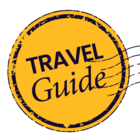Hi,
its a shame that interrail doesnt have a real support, just a bot which isnt really working for me, so here we go with my questions:
I have a 1 month interrail pass with 4 trips (incl. 2 home country days)
- Berlin → Zermatt (Mo, 23.01.2023)
- Zermatt → Berlin (Fr, 27.01.)
- Berlin (or Hamburg, not sure yet) → Bordeaux (09.02.)
- Bordeaux → Berlin (14.02.)
How can i use this pass in the best way?
Like i was planning it right now its not possible, because i have 4 home country ride, correct?
What do i do with the bordeaux rides? book a normal ticket for the DB from what station or until what station?
Looking forward to hear from you and thank you for your help
Best answer by AnnaB
View original







